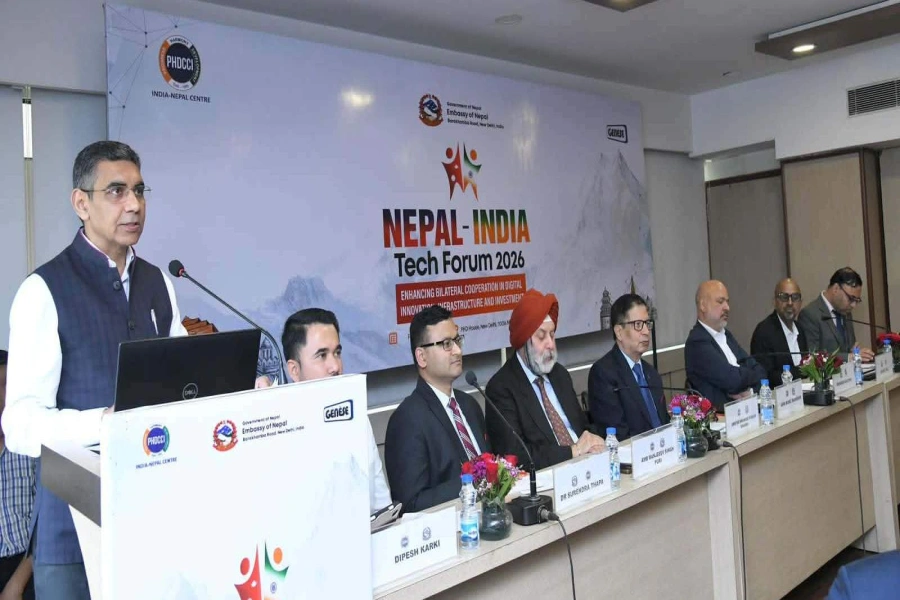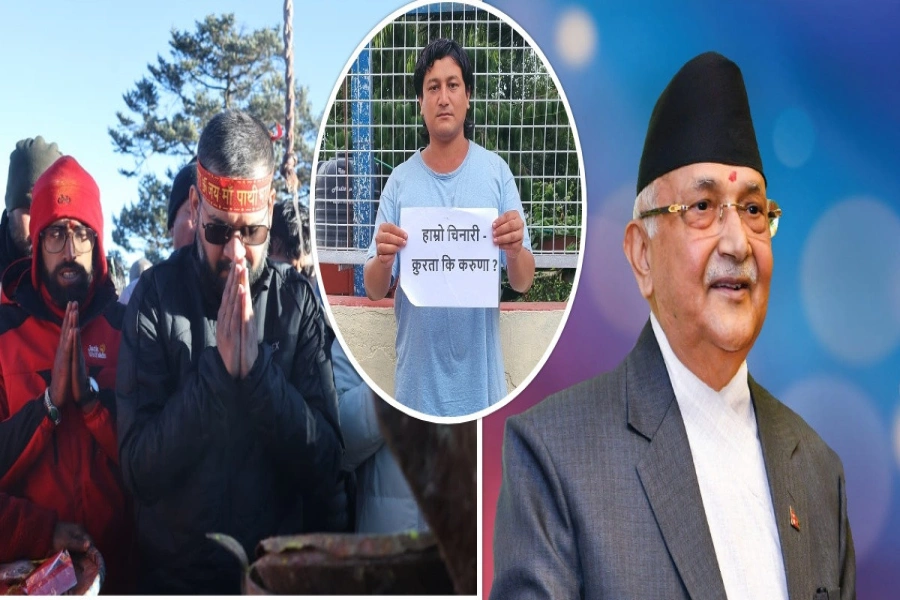KATHMANDU, June 26: In order to pressurize the authorities to come up with a better covid-19 response, social activist ‘Iih’ who is also the admin of group ‘Enough is enough’ has started a hunger strike. The hunger strike runs on the theme ‘enough is enough: Satyagraha to save lives (a plea for truth to be heard)’.
Thousands of independent citizens have signed petitions, instigated SMS campaigns, written about the issue and conducted campaigns online and spontaneously hit the streets – organizing peaceful, physically distanced protests, at over 100 locations across Nepal. However, the government has refused to alter its ‘incompetent ways’.
Thus the move comes as to compel the government to immediately spring into action for a better response as soon as possible. Throughout the duration of the Satyagraha, lih will not have water or food. His hunger strike started from 1 PM from today in Patan with 11 demands:
1. Expansion of RT-PCR testing and transparency in procurements of testing machines, kits, VTMs and other essentials.
Youth activist Iih ends his 23-day hunger strike

2. Discontinuance of RDT testing as it is incapable of detecting active cases early on to break the chain of transmission.
3. Rectification of quarantine strategy where arriving travelers must be tested through RT-PCR and only positive cases should be quarantined at medically supervised isolation centers. People who have tested negative should be given the option to self-isolate at home for 14 days. People at the existing mass quarantine centers should be sent home only if they test negative for the virus through RT-PCR.
4. Transparency and Accountability regarding Covid-19 related purchases and programs. Corruption should not be tolerated at all and all the serious allegations should be investigated thoroughly.
5. Protection of frontline health workers by providing adequate personal protective equipment (PPE) must be provided to all who require it. The safety, dignity and comfort of frontline health workers must be ensured by enforcing existing legal provisions.
6. Dignity and relief for vulnerable migrants, the working class, and marginalized communities must be insured and Supreme Court’s decisions considering relief must be implemented. Stigmatization and discrimination must be strongly dissuaded by taking legal action.
7. Optimum utilization of existing resources should be brought into use as soon as possible.
8. Increment in medical capacity should be pressurized.
9. Clarifying lockdown easing guidelines by informing about additional risks of reopening and a strict adherence to defined physical distancing rules should be brought.
10. Implementation of court decisions must be ensured.
11. National and Provincial Members of Parliament, Local Representatives and other influential public office holders are suggested to use every resource available for them.





































